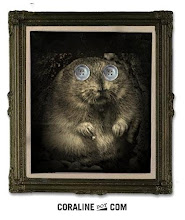I've just started a class on cultural challenges in world literature, and one of our first readings was a short story called "The Setting Sun and the Rolling World" by Charles Mungoshi. Below is my first dicussion post about the story, which I really enjoyed writing:
"The Setting Sun and the Rolling World" opens with two lines that set the stage of the story for me. In two lines, it is established that the earth and land are symbolic of the old traditions and the sky symbolizes the new ways of thought. The story opens with: "Old Musoni raised his dusty eyes from his hoe and the unchanging, stony earth he had been tilling and peered into the sky. The white speck whose sound had disturbed his work and thoughts was far out at the edge of the yellow sky, near the horizon" (98).
The description of the earth is of something hard and resistant, something set in its ways and unwilling to give. This is immediately juxtaposed with the sky, which is connected to disturbing him and is colored yellow. Yellow is often associated with illness and disease, and in this case, brings attention to the fact that the sky - symbolic of change brought about by the outside world - is disrupting the old ways. Similarly, the introductory paragraph mentions Musoni looking west and seeing "the shadows creeping east" (98) which shows the sun in the sky from the west (North America, Europe, the "new world") bringing darkness across his lands.
Once this exposition has been established, it is easy to look for signs throughout the story that point to the continuum of community stability and individual fulfillment. This also directly relates to the question of progress versus tradition. In fact, as Musoni tells his son that "there is no way out in the world. Except the way of the land, the way of the family" (99) we see that there is a strong tie to family and community among these people. Though Nhamo loves his father and shows him respect, he believes that some of the new ways are better.
The story compares the people of his community to animals and Nhamo laughs at the belief his father still holds in charms and magic. He is thrilled when his father gives his blessing for the journey ahead and we are told "he was free" (101) which I take to mean not only from the community of his people, but that he is finally free of the old ways and can make a life of his own, influenced by the new ways brought from the colonialization and from the white man.
Nhamo insists that he must go away because there is nothing for him there. The land is dying and "the family is almost broken up" (99). He has chosen to seek individual fulfillment over the stability of the community, since he feels his community is already unstable. The last paragraph shows that perhaps this community, like Nhamo, will no longer be able to resist the force of new ideas and progress as the sky, wind, and frost attack "the unprotected land" (102).
Friday, September 11, 2009
Subscribe to:
Post Comments (Atom)

No comments:
Post a Comment